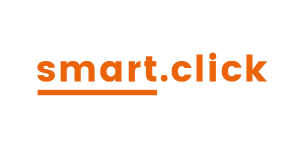In today’s digital age, hospitals are more than just places where patients receive treatment; they are dynamic environments that require meticulous monitoring of various parameters to ensure patient safety, regulatory compliance, and operational efficiency. One of the most crucial aspects of hospital management is maintaining optimal conditions, which includes the monitoring of temperature, humidity, atmospheric pressure, and air quality. Companies like Efento are at the forefront of integrating advanced sensor technology into the healthcare sector to address these needs effectively.
The Critical Role of Temperature and Humidity Monitoring
Temperature and humidity levels in hospitals are vital for several reasons. They not only affect patient comfort and recovery but are also crucial for the storage of medicines, vaccines, and biological samples. Incorrect temperature or humidity levels can compromise the efficacy of pharmaceuticals and potentially endanger lives. Efento’s solutions enable continuous monitoring of these parameters, ensuring that they remain within the required thresholds, thereby safeguarding both patient health and medical supplies.
Efento’s Technological Solutions in Hospitals
Efento offers a range of sensors that can monitor various environmental conditions within hospital settings. Their Bluetooth Low Energy and NB-IoT sensors are particularly suited for healthcare applications because they provide reliable, real-time data transmissions without the need for extensive infrastructure modifications. These sensors are capable of measuring not just temperature and humidity but also atmospheric pressure and indoor air quality, including volatile organic compounds (VOCs) and CO2 levels. This comprehensive monitoring capability is crucial for maintaining a sterile environment in areas such as operating rooms and isolation wards.
Integration and Accessibility
An integral part of Efento’s technology is its seamless integration with existing hospital systems. The data collected by the sensors can be accessed via the Efento Cloud, a robust IoT platform that allows healthcare administrators to view and analyze the data in real-time. This cloud-based system supports various sensor types, including those for pulse counting and even soil moisture, although the latter is more relevant for other industries.
Advantages of Wireless Technology
The adoption of wireless technology in hospital environments offers several advantages. Wireless sensors are easier to install and relocate, minimizing disruptions in critical areas. They also reduce the risk of infections associated with handling or maintenance. Efento’s sensors, with their long battery life and maintenance-free operation, are designed to be particularly advantageous in busy healthcare settings where reliability and efficiency are paramount.
Ensuring Compliance and Enhancing Safety
Regulatory compliance is a significant concern in the healthcare industry. Efento’s monitoring solutions are designed to meet stringent standards, such as FDA 21 CFR Part 11, and Good Distribution Practice (GDP), ensuring that hospitals can achieve and maintain compliance with health regulations. Moreover, the ability to set customized alerts for deviations in monitored conditions means that any potential issues can be addressed promptly before they impact patient care or safety.
The Future of Hospital Environment Monitoring
As hospital administration continues to evolve, the integration of advanced monitoring technologies like those provided by Efento will likely become standard practice. These technologies not only enhance patient care but also contribute to energy conservation by allowing facilities to optimize their heating, ventilation, and air conditioning systems based on accurate, real-time environmental data.
In conclusion, the role of technology in healthcare is expanding beyond medical devices and into the broader management of hospital environments. Efento’s suite of sensors and IoT solutions represents a significant advancement in this field, providing hospitals with the tools they need to ensure a safe, comfortable, and compliant environment for patients and staff alike. By harnessing the power of real-time data and cloud technology, hospitals can improve operational efficiencies, comply with regulatory standards, and, most importantly, provide higher standards of patient care.
